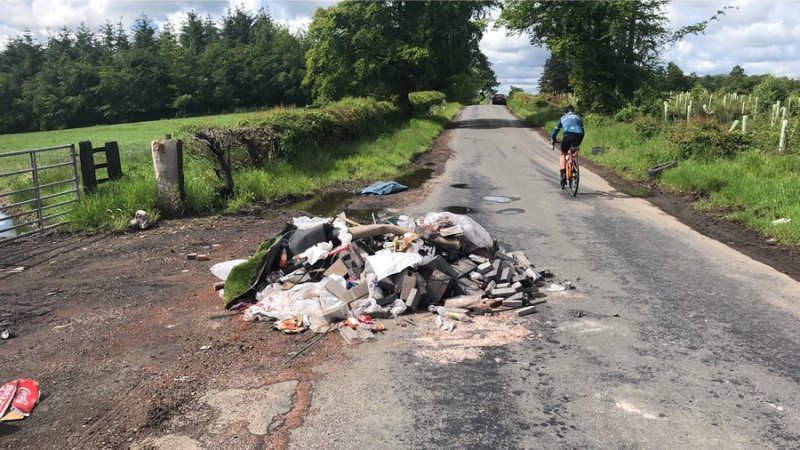
New Defra figures show the severe damage that fly-tipping is doing to areas across England, but rural groups warn the true scale of the crime is likely to be more widespread.
The government's figures, released on Wednesday, show that incidents of fly-tipping on public land have increased by 16% in England during 2020/2021.
These figures underline the damage afflicted on councils in England, who dealt with 1.13 million fly-tipping incidents during this period.
But the figures only account for waste illegally dumped on public land which had been reported to the authorities.
The Country Land and Business Association (CLA), which represents around 28,000 rural businesses, believes these figures only tell half of the story.
The vast majority of fly-tipping incidents occur on privately-owned land, the group noted, painting an even more damaging picture of the financial burden fly-tipping brings.
One landowner, who is also a member of the CLA, said he was so badly affected by one incident that he faced a bill of over £100,000 to clear it up.
The rural group said this highlighted the need to change the current fining and imprisonment laws, which "are not enforced and do not deter criminals".
Mark Tufnell, president of the CLA, said: “These figures do not tell the full story of this disgraceful behaviour which blights our beautiful countryside.
“Local authorities tend not to get involved with clearing incidences of fly-tipped waste from private land, leaving the landowner to clean up and foot what is often an extortionate bill.
"The government figures do not reflect the true scale of the crime because increasing reports of fly-tipping on private rural land are not included, coupled with the country plunged into lockdown.
"Fly-tipping continues to wreck the lives of many of us living and working in the countryside – and significant progress needs to be made to stop it.”
Although the maximum fine for anyone caught fly-tipping is £50,000 or 12 months’ imprisonment, if convicted in a Magistrates' Court, this is rarely enforced.
Unless tougher action is taken to combat this kind of rural crime, rural groups warn it will continue to wreak devastation across communities.
The Countryside Alliance said the UK's lockdown and the subsequent closure of tips only exacerbated the fly tipping crisis.
"We would urge local authorities to think very carefully about preventing access to these facilities in future," said Sarah Lee, director of policy at Countryside Alliance.
“From quiet rural lanes and farmers’ fields to bustling town centres and residential areas, fly-tipping continues to cause misery across the country."
